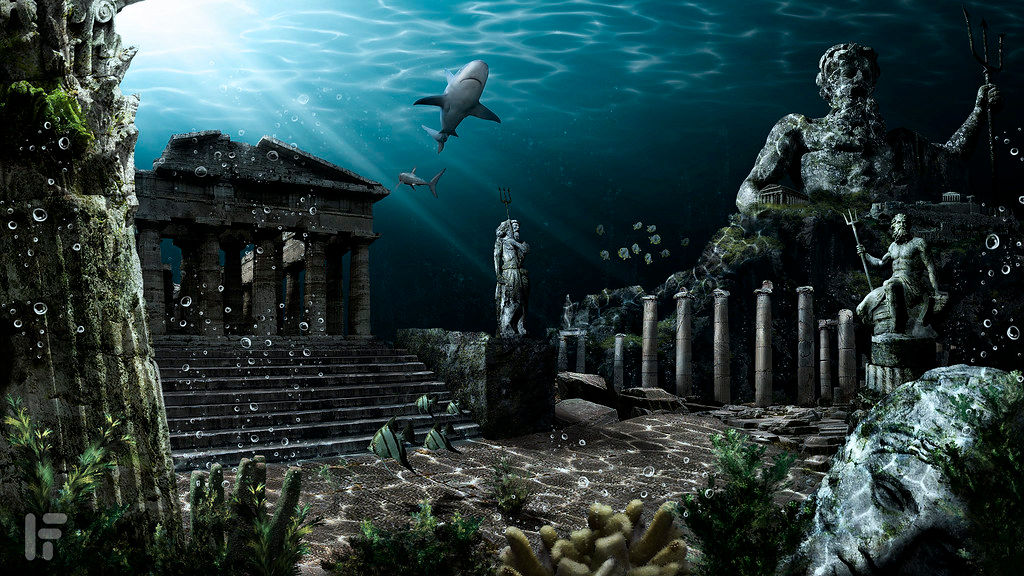*Disclaimer: this article covers the topic of conspiracy theories and pseudoscience which can both be harmful and misleading. With this, the author does not intend to reinforce the spread of conspiracy theories, but to inform and teach readers to not trust everything they read or watch online. Please read with caution.
Imagine: you are back home from a long day at uni, you are tired and just want to unwind watching a nice series. You log in into Netflix and find a “documentary” called Ancient Apocalypse. As a passionate scientist, you may not like history, but something sparks your interest and you decide to watch it. It keeps you entertained and, episode after episode, you finish the series believing that Atlantis was real and science has been lying to us.
Ancient Apocalypse is a series led by Graham Hancock about the early history of human civilization. According to Hancock’s theory, an ancient advanced civilization existed during the last Ice Age (around 10,000 years ago) when humans were thought to be only hunters and gathers. In each episode, he visits an ancient monument explaining how archeologists are covering up the “true” date of the site construction. But, if such a civilization really existed, where did everyone go?
Hancock states that this advanced civilization (along with most of the evidence of its existence of course) was completely destroyed by a massive flood caused by a meteorite collision in North America (and by massive I mean cataclysmic).
However, some people survived the flood (not really clear how) and decided to make it their purpose in life to travel the world and teach primitive humans astronomy, engineering, politics, etc. Basically, they taught humans to be civilized.
Indeed, most cultures have stories about a massive flood and a superhero that saves humanity or teaches them the way to civilization.
The series has sparked some concerns among archeologists because it presents unproven/ false theories and devalues archeology as a discipline, questioning the credibility of academics and promoting mistrust in science. As a consequence, the Society for American Archeology felt the need to write a letter to Netflix urging it to declassify the series as “science fiction” rather than a “documentary”.
What did Hancock do wrong?
Archeologists state Hancock “misinterpreted evidence to support his theory” and condemn him for spreading false stories. I personally cannot say whether the evidence Hancock has found is valid or not, however, there is plenty of other evidence that contradicts his theory. What I can say is that his method and attitude do not conform with the scientific method and integrity.
Archeology, like any other academic discipline, is based on research, evidence, analysis and peer-reviewing. The author of the series fails to provide any alternative hypothesis to his, but instead he openly attacks academia for having hidden “true evidence” and lied to everyone (also, why would they?). For these reasons, his ideas may be considered a conspiracy theory and his series pseudo-archaeological.
His attitude towards archeologists is not the only concerning aspect about the series. The ideas he proposed are thought to promote racism, white-supremacy and extremism. Indeed, he is basically proposing that advanced white people taught indigenous naive humans how to be civilized, on the assumption that they could not have developed otherwise. This is disrespectful for Indigenous people and their ancestors.
In addition, if we google the “experts” that Hancock interviewed, they are all supporters of his ideas and are believed to contribute to the field of pseudoarchaeology. The only two real archeologists present in the series have claimed that their interviews were manipulated and presented without context to support his ideas. As you may deduct, the series is very biased towards his perspective and this is not how science works.
Despite the existence of a lost fallen civilization may sound appealing, the truth is that there are still a lot of mysteries regarding human evolution and civilization. Therefore, we must proceed with caution. I believe throwing around unsupported theories and insulting academia is not the right way to go… but hey, everyone has the right to tell their story. With this article, I hope you realized the need to be critical about online information, even when it comes from so-called documentaries.






